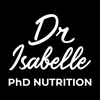A LOOK AT MICROBIOTA DIVERSITY

Collaboration with St-Méthode Bakery

Your microbiota is your internal ecosystem, a secret garden in your digestive system. For a long time, it was wrongly believed that the microbiota’s influence was limited to the digestive system and, still today, our understanding of the extent of its effects on physical and psychological health is in its infancy. Recent scientific discoveries have shed some light on how a problematic microbiota can increase the risk of chronic illnesses, inflammatory diseases, and neurodegenerative disorders. Needless to say, you should really learn how to optimize your microbiota! Here’s some advice…
Several factors have an influence on the composition of your microbiota, such as your age, the medicine you take on a regular basis, and your lifestyle habits. Diet plays a central role in microbiota modulation. Probiotics and prebiotics are key players in this respect.
Probiotics are living organisms that have beneficial effects on the body—when consumed in sufficient quantities. They help with the synthesis of certain vitamins, promote the digestion of lactose, strengthen the intestinal barrier, and may even help optimize immune system functions.
Prebiotics are essentially fibres that promote the growth of probiotics in your intestines. In a way, they feed the probiotics and, in this sense, the two act in synergy. Among the most well-known of these prebiotics are inulin, fructo-oligosaccharides (FOS), and galacto-oligosaccharides (GOS). By including these prebiotics in your diet, you make sure that your gut’s beneficial bacteria are well fed—to the detriment of harmful bacteria. This balance between “good” and “bad” bacteria is crucial and can be achieved by eating a diverse, high-fibre diet.
Probiotic-rich foods
Fermented dairy products
Fermented dairy products, like certain types of yogurts and kefir, contain such probiotics as bifidobacterium and lactobacillus. Yogurt’s regular bacteria do not have any probiotic modes of action; you must therefore choose products that are enriched with probiotic strains.
Fermented foods
While fermented products like tempeh, miso, kimchi, and sauerkraut do not officially contain strains of probiotics, studies have linked their consumption to benefits on the microbiota. Certain trendy beverages now include kefir microorganisms, which allows them to promote their probiotic content.
Prebiotic-rich foods
Onions/garlic/leeks
Onions, garlic, and leeks are important elements of our diet—and that’s a good thing. They’re high in prebiotics, including inulin and fructo-oligosaccharides, as well as in antioxidants and flavonoids. It’s a good idea to eat them on a regular basis.
Whole grains
Whole grains are among the main sources of fibre in our diet. It is advisable to eat at least 25 g of fibre per day to optimize your microbiota. By including 100% whole grain bread in your daily diet, you can easily meet your fibre needs. I like to rely on sources of prebiotics that are easy to enjoy every day, like some of St-Méthode’s breads, whose ingredients include inulin—notably its 100% Whole Grain Loaf with Sprouted Wheat (Les Grains St-Méthode).
Summing up :
Your microbiota not only has an influence on your physical health but affects your mental health as well.
Probiotics are living microorganisms that play a beneficial role in your body.
Prebiotics are generally fibres that promote probiotic activity.
Probiotics act in synergy with prebiotics.
Consuming probiotics and prebiotics on a daily basis helps optimize your microbiota.
@Manon : Bonjour Manon, oui, tout à fait!
Est-ce que Align Probiotique est toujours recommandé de votre part?
Bonjour
Depuis très longtemps je prends le pain st-méthode multi céréales sans gras ni sucre. Ce pain convient aussi à mon conjoint car il ne lui donne pas de maux de ventre le lendemain.Est-ce que le pain que vous suggérez soit la miche 100% grains entiers avec blé germé serait mieux? Surtout pour moi qui ai besoin de beaucoup de fibres.
Merci beaucoup. Vos conseils sont précieux.
@Nathalie : Bonjour Nathalie, en ce qui concernant le régime FODMAP, je vous suggère de prendre rendez-vous avec une nutritionniste. Cette dernière sera en mesure de vous guider vers les choix adaptés à vos besoins.
@Nicole : Bonjour Nicole, les pains St-Méthode sont très équilibrés. Ils contiennent une belle quantité de protéines et de fibres et sont donc très nourrissants.











7 comments